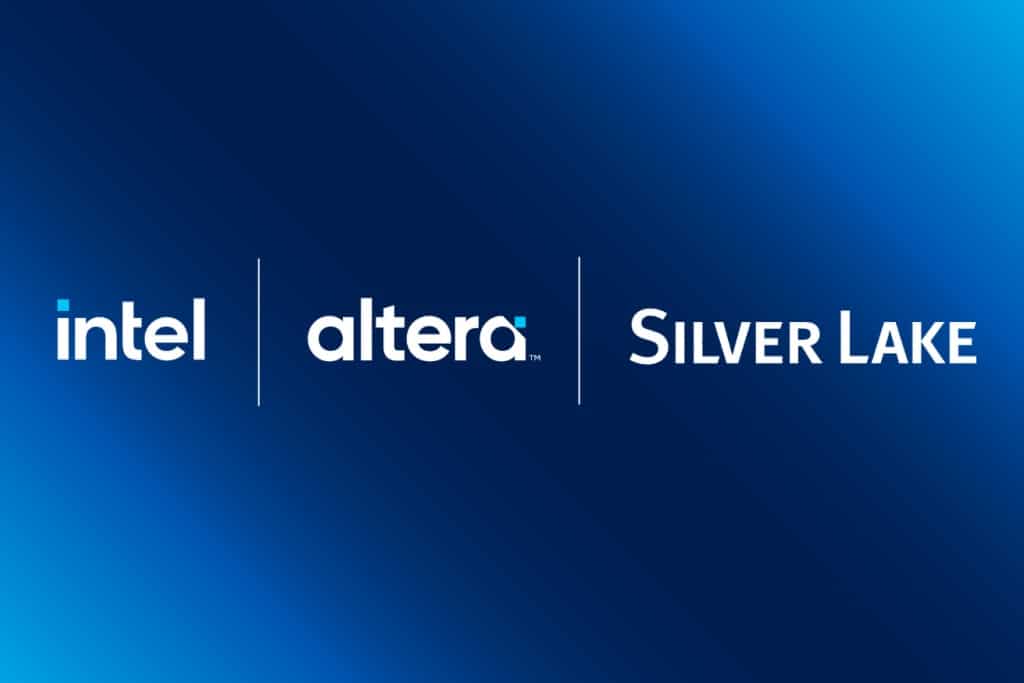Intel has taken a major strategic step by announcing the sale of 51% of its Altera business to the technology investment fund Silver Lake, in a transaction valuing the company at $8.75 billion and making Altera the largest independent FPGA (Field Programmable Gate Array) company in the world.
The deal, which is expected to close in the second half of 2025, will mark a new chapter for Altera, which will operate independently, though Intel will retain a 49% stake and continue to be involved as a strategic partner, offering foundry services and collaborating on shared customers.
A new independence to lead FPGA innovation
The spin-off of Altera comes at a critical time for the semiconductor market, where FPGAs are gaining prominence as key platforms for applications in artificial intelligence, edge computing, industrial automation, and defense systems.
At the helm of this new phase will be Raghib Hussain, who will assume the role of CEO starting May 5, 2025, succeeding Sandra Rivera after her long tenure at Intel. Hussain brings extensive experience: he was President of Products and Technologies at Marvell, co-founded Cavium, and held positions at Cisco, Cadence, and VPNet.
“This milestone with Silver Lake reinforces Altera’s path to becoming the world’s number one in FPGA solutions. As an independent company, with a clear focus and financial backing, we will be able to accelerate the development of solutions that will shape the future of AI-driven computing,” Hussain said.
The vision of Intel and Silver Lake
For Intel, the sale represents a way to concentrate on its core business and improve its financial position, while maintaining a stake in Altera’s evolution. Lip-Bu Tan, Intel’s CEO, highlighted that the deal aligns with the strategy to “refine focus, reduce expenses, and strengthen financial structure.”
Silver Lake’s president, Kenneth Hao, described the investment as a “once-in-a-generation opportunity” to position itself as a global leader in advanced semiconductors. The fund, managing over $104 billion in assets, has made it clear that it will support Altera with investments in emerging markets such as AI, robotics, and edge computing.
Altera: 40 years of history in FPGAs
Founded in 1983 and acquired by Intel in 2015, Altera has been a pioneer in the FPGA market—programmable chips that can be tailored to a wide range of applications. These semiconductors are vital in sectors such as:
- Data centers and AI workload acceleration.
- 5G communications and advanced networks.
- Industry and automotive, particularly in safety and control systems.
- Defense, aerospace, and government applications.
The ecosystem includes the well-known Quartus Development Tool Suite, which offers free development tools like Quartus Prime, FPGA AI Suite, and soft processors such as Nios V based on RISC-V. Additionally, it maintains strong ties with academia by providing affordable development kits for universities and engineering students.
Financial details and outlook
In 2024, Altera generated $1.54 billion in revenue. However, it recorded an GAAP operating loss of $615 million, compared to a non-GAAP operating profit of $35 million, reflecting ongoing restructuring efforts.
With Silver Lake’s new financial backing and operational independence, analysts expect Altera to reorient its portfolio toward the fastest-growing and most profitable segments of the FPGA market.
The transaction will also allow Intel to deconsolidate Altera’s financial results from its accounts, easing some pressure on its profitability at a time when the company is making significant investments in foundries and new processor technologies.
Industry implications
This move reinforces the trend toward increased specialization in semiconductors. While giants like TSMC and Samsung dominate advanced node manufacturing, and NVIDIA and AMD focus on GPUs for AI, Altera is establishing itself as the premier independent FPGA provider.
This repositioning occurs amid a climate of intense competition and rapid technological change: the expansion of generative AI, advanced robotics, industrial automation, and the need for secure and flexible solutions for critical environments are making FPGAs more important than ever.
📌 Frequently Asked Questions (FAQ)
1. What does it mean that Altera is now an “independent” company?
Altera will operate as a separate company from Intel, with autonomy in strategic decisions, though Intel will hold a 49% stake and continue to support manufacturing.
2. Why are FPGAs important in today’s market?
Because they can be reconfigured after manufacturing, making them ideal for dynamic applications like artificial intelligence, telecommunications, defense, and automotive.
3. What role will Silver Lake play in Altera?
Silver Lake will provide funding and strategic support to help Altera accelerate its growth in emerging markets like AI, edge computing, and robotics.
4. How will this deal affect Intel?
It will enable Intel to focus on its core business, improve its financials, and continue benefiting from Altera’s growth through its minority stake.

